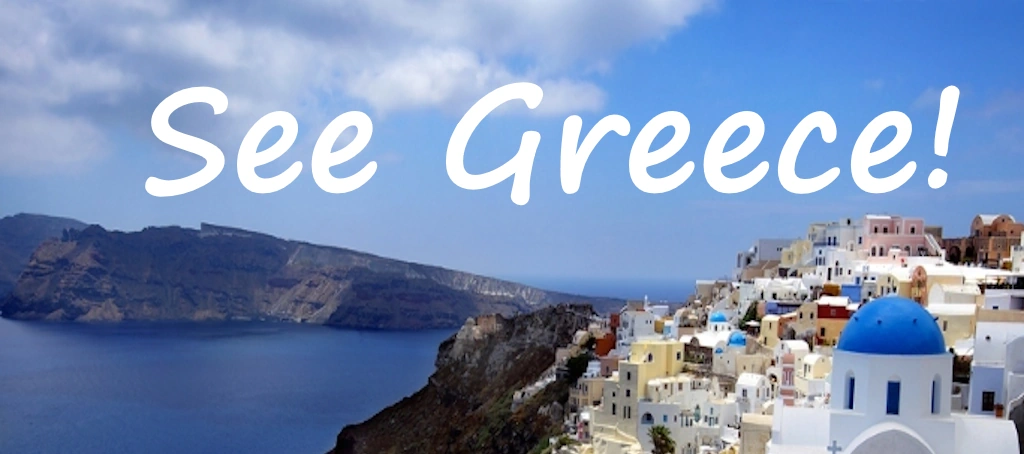The See Greece guide to the island of Donousa in the Cyclades with a brief history and travel information on how to get there and what to see and do on Donousa.

Introduction to Donousa
Donousa (Greek: Δονούσα) is a small, unspoiled island in the Cyclades, known for its pristine beaches, rugged landscapes, and tranquil atmosphere. With fewer than 200 permanent residents, it offers an authentic Greek island experience away from mass tourism. Its remote location and untouched beauty make it ideal for travelers seeking relaxation, adventure, and a glimpse into traditional island life.
Location & Geography
Donousa is part of the Lesser Cyclades, located northeast of Naxos and southeast of Amorgos. It covers just 13.75 square kilometers, making it one of the smallest inhabited islands in the archipelago. Despite its size, Donousa boasts dramatic cliffs, secluded coves, and crystal-clear waters perfect for swimming and snorkeling.
A Brief History of Donousa
Donousa has a rich history dating back to ancient times. According to mythology, it was where Dionysus hid Ariadne after Theseus abandoned her on Naxos. Archaeological findings suggest the island was inhabited since the Early Cycladic period (3rd millennium BC).
Throughout history, Donousa was used as a hideout by pirates due to its remote location. In the 19th and 20th centuries, it was primarily a farming and fishing community. Today, tourism is growing, but the island retains its traditional charm.
What to See & Do on Donousa
1. Explore Stunning Beaches
Donousa’s beaches are among its biggest draws:
– Kedros Beach – The most famous, with golden sand and turquoise waters, accessible via a short hike.
– Livadi Beach – A sandy bay near the port, ideal for families.
– Stavros Beach – A secluded pebble beach with excellent snorkeling.
– Vathi Limenari – A remote cove with deep blue waters, best reached by boat.
2. Hiking & Nature Trails
The island offers scenic hiking routes, including:
– The Path to the Cave of the Wall (Spilia Tichos) – A fascinating sea cave with impressive rock formations.
– Hike to Mount Papas (385m) – The highest point on the island, offering panoramic views.
3. Traditional Villages
– Donousa (Stavros) – The main village with whitewashed houses, tavernas, and a relaxed vibe.
– Mersini – A tiny fishing hamlet with a picturesque harbor.
– Kalotaritissa – A remote settlement with a beautiful beach.
4. Local Cuisine & Nightlife
Donousa has a handful of family-run tavernas serving fresh seafood and traditional dishes like fava, grilled octopus, and local cheeses. Nightlife is low-key, with a few bars offering cocktails by the sea.
5. Boat Trips & Snorkeling
Small boat tours explore hidden coves and nearby islets. The clear waters make snorkeling a must—look for colorful fish and underwater caves.
How to Get to Donousa
By Ferry
Donousa is accessible by ferry from:
– Naxos (2-3 hours) – The most common route, with weekly connections.
– Piraeus (Athens) (7-9 hours) – Direct ferries run a few times a week in summer.
– Amorgos & Other Cycladic Islands – Occasional connections via smaller boats.
Ferry Companies:
– Blue Star Ferries (larger, slower vessels)
– Smaller catamarans & local boats (faster but less frequent)
By Air
There is no airport on Donousa. The nearest options are:
1. Naxos Airport (JNX) – Domestic flights from Athens, then a ferry to Donousa.
2. Mykonos or Santorini Airports – International flights, followed by a ferry via Naxos.
Best Time to Visit Donousa
The best months are May to September, with warm weather and calm seas. July and August are busiest, while May, June, and September offer a quieter experience.
Conclusion
Donousa is a paradise for those seeking serenity, natural beauty, and authentic Greek island culture. Whether you’re hiking its scenic trails, swimming in secluded bays, or simply enjoying fresh seafood by the sea, this lesser-known gem promises an unforgettable escape. With limited tourist infrastructure, it remains one of the Cyclades’ best-kept secrets—perfect for adventurers and peace-seekers alike.





















